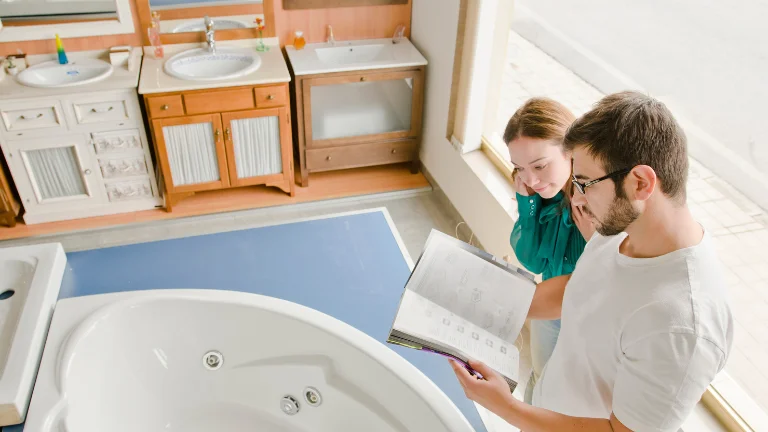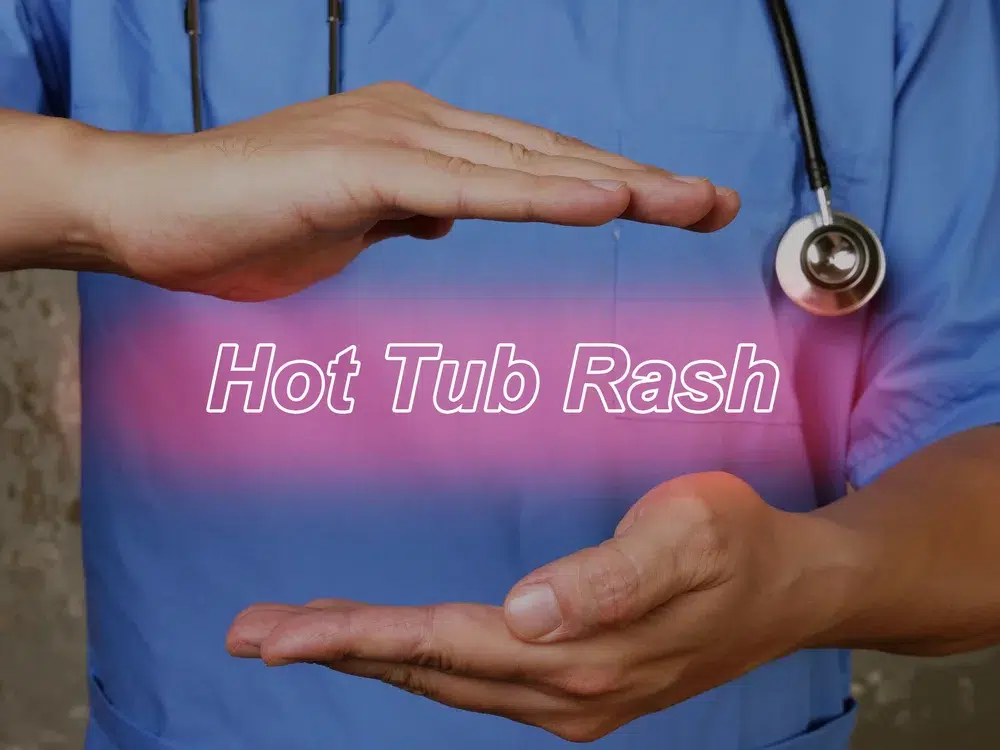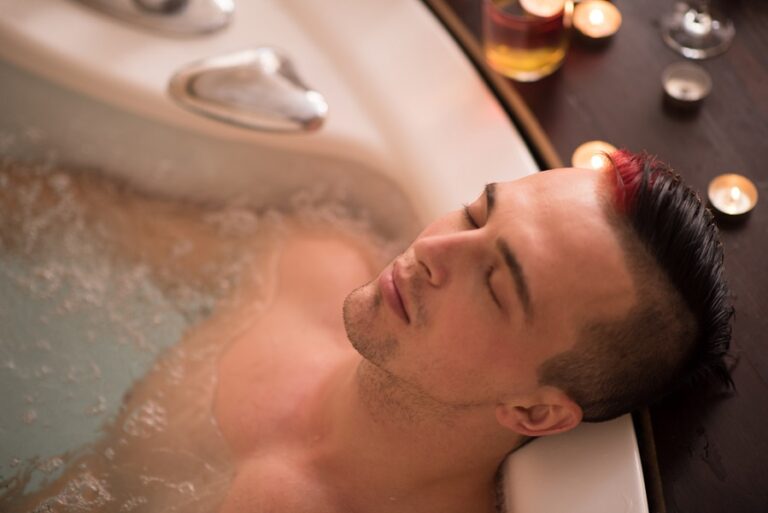6 Surprising Reasons You Might Get Eczema From Hot Tub
Uncover the surprising link between “Eczema From Hot Tub” – learn how to prevent flare-ups and enjoy your soak without skin irritation. Expert advice on managing eczema while indulging in the relaxation of a hot tub.
I’ve always been a fan of hot tubs – the warm, bubbling water, the relaxing atmosphere, and the soothing effects it has on sore muscles. But as someone who’s had a long-standing battle with eczema, I was shocked to discover that my beloved hot tub might actually be contributing to my skin woes.
If you’re like me and have experienced eczema flare-ups after a hot tub soak, you’re not alone. In this article, we will delve into this surprising connection and explore six reasons why hot tubs can trigger eczema, even though they seem like a haven of relaxation.
Six Reasons of Eczema From Hot Tub
1. Chlorine Overload
Hot tubs are typically sanitized with chlorine to keep them safe and clean. While chlorine is useful at killing bacteria and controlling infections, it can be harsh on the skin. The high chlorine levels in hot tubs can strip your skin of its natural oils and disrupt the skin barrier, making it easier for eczema to flare up. It can be particularly problematic for individuals with sensitive skin.
2. High Water Temperature
The very thing that makes hot tubs so inviting – the hot water – can also trigger eczema. The elevated water temperature can cause your skin to lose moisture rapidly, leaving it dry and prone to irritation. Eczema-prone skin is deficient in retaining moisture, so soaking in hot water for extended periods can exacerbate the problem.
3. Chemical Imbalance
Hot tubs require a delicate balance of chemicals to maintain their water quality. If the chemicals are not properly balanced, it can lead to skin irritation. The chemical imbalance can manifest in redness, itching, and, you guessed it, eczema.
4. Bacteria Breeding Ground
Hot tubs, despite their efforts to stay clean, can sometimes become breeding grounds for harmful bacteria. Pseudomonas aeruginosa is a common culprit. When this bacterium comes into contact with your skin, it can cause skin infections and potentially trigger eczema flare-ups.
5. Frequent Soaks
While hot tubs are undoubtedly relaxing, excessive use can harm your skin, specifically if you have eczema. Frequent soaks can lead to overexposure to chlorine and hot water, exacerbating the risk of skin irritation and eczema.
6. Allergen Accumulation
Hot tubs are not immune to allergens like pollen, dust, and mold. These allergens can accumulate in the water and become a source of skin irritation. People with eczema are often more sensitive to allergens, making them susceptible to flare-ups.

By incorporating these eczema-specific safety measures, individuals with sensitive skin can still enjoy the benefits of a hot tub without exacerbating their condition. For more information on hot tub safety and eczema management, visit HotTubPatio’s article on Safety Precautions When Using Hot Tubs.
Can hot tubs cause eczema flare ups?
Yes, hot tubs can cause eczema flare-ups. The hot water, chlorine, and other chemicals in hot tubs can strip the skin of its natural oils and irritate eczema-prone skin. The heat and humidity of hot tubs can also make eczema worse.
If you have eczema, it is best to avoid hot tubs. However, if you do choose to use a hot tub, there are a few things you can do to reduce the risk of a flare-up.
- Hot water: Excessive hot water can strip skin of natural oils, conducting to dryness and irritation. Eczema-prone skin is already dry and irritated, so hot water can worsen it.
- Chlorine: Chlorine is a disinfectant often used in hot tubs to kill bacteria. Chlorine can be drying and irritating, especially for those with eczema.
- Other chemicals: Some hot tubs may contain other chemicals, such as fragrances and dyes. These chemicals can also irritate the skin, especially for people with eczema.
In the quest for relaxation, hot tubs have become a go-to choice for unwinding after a long day. The soothing warmth, the gentle bubbling of the water, and the tranquil atmosphere they offer can be incredibly enticing. But if you’re someone who struggles with eczema, you might be wondering, “Can hot tubs cause eczema flare-ups?” Let’s dive into the intricacies of this topic to better understand the potential relationship between hot tubs and eczema.
The Eczema Dilemma
Eczema, also known as atopic dermatitis, is a typical skin condition that affects millions of people worldwide. It’s characterized by red, itchy, and inflamed skin, which can be both uncomfortable and frustrating.
Eczema is often triggered or exacerbated by various factors, including allergies, irritants, and environmental conditions. So, could hot tubs be one of those triggers?
Hot Tubs 101
Before we delve into the hot tub-eczema connection, let’s first grasp what hot tubs entail. Hot tubs are small pools with heated water equipped with jets for massaging and relaxation. They are commonly set outdoors or indoors and popular for recreation and hydrotherapy.
Chemical Composition of Hot Tub Water
Hot tubs are maintained using a combination of chemicals like chlorine and bromine to maintain the water clean and sanitary. These chemicals are essential to prevent the growth of harmful bacteria and microorganisms in warm water.
Warm Water and Its Effects
The warm water in hot tubs can be soothing and relaxing, promoting blood circulation and easing muscle tension. However, excessive exposure to hot water can also lead to the skin evolving dry and dehydrated.
Hot Tubs and Eczema
Now, let’s address the million-dollar question: can hot tubs cause eczema flare-ups? The answer, like many things in life, isn’t black and white. It depends on various factors, such as water quality, personal sensitivities, and how you care for your skin.
Chlorine and Bromine Sensitivity
For some individuals with eczema, sensitivity to the chemicals used to treat hot tub water (chlorine and bromine) can lead to skin irritation and exacerbate eczema symptoms. When these chemicals aren’t properly balanced or are used in excessive amounts, they can cause skin dryness, itching, and discomfort.
Warm Water Dilemma
The warm water can be a double-edged sword. While it can initially relieve some eczema sufferers by reducing itching and inflammation, prolonged exposure may strip your skin of its natural oils, exacerbating dryness and potentially leading to flare-ups.
Tips for Eczema-Friendly Hot Tubbing
If you’re an eczema sufferer and still want to enjoy the occasional dip in a hot tub, there are steps you can take to minimize the risk of flare-ups:
- Check Water Quality: Ensure the hot tub water is properly balanced with chlorine or bromine. Test strips can help you maintain optimal water conditions.
- Limit Soak Time: Keep your hot tub sessions short to avoid overexposure to warm water.
- Rinse and Moisturize: After your hot tub session, rinse off to remove residual chemicals and moisturize your skin to prevent dryness.
- Consult a Dermatologist: If you’re unsure about hot tubbing with eczema, consult a dermatologist for personalized advice.
For additional information, visit Hot Tub & Patio, or if you’re interested in more reading, see Guides and Reviews.
The Verdict: (Can hot tubs cause eczema flare ups)
Hot tubs can trigger eczema flare-ups, but it largely depends on your individual sensitivity and how you manage your hot tub experience. By taking precautions and being mindful of water quality and exposure, you can enjoy the soothing benefits of a hot tub without exacerbating your eczema.
So, don’t let eczema keep you from indulging in a relaxing soak. Remember to take those extra steps to keep your skin happy and healthy. For more reading about Eczema from Hot Tub.













